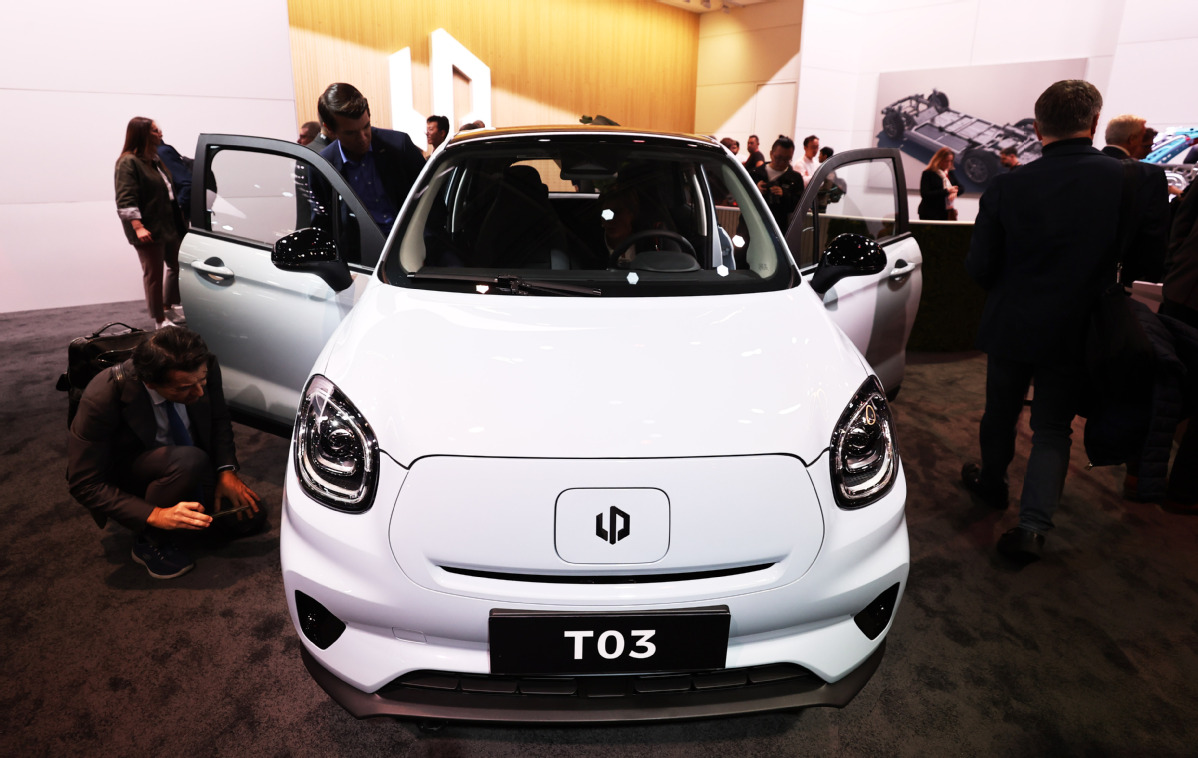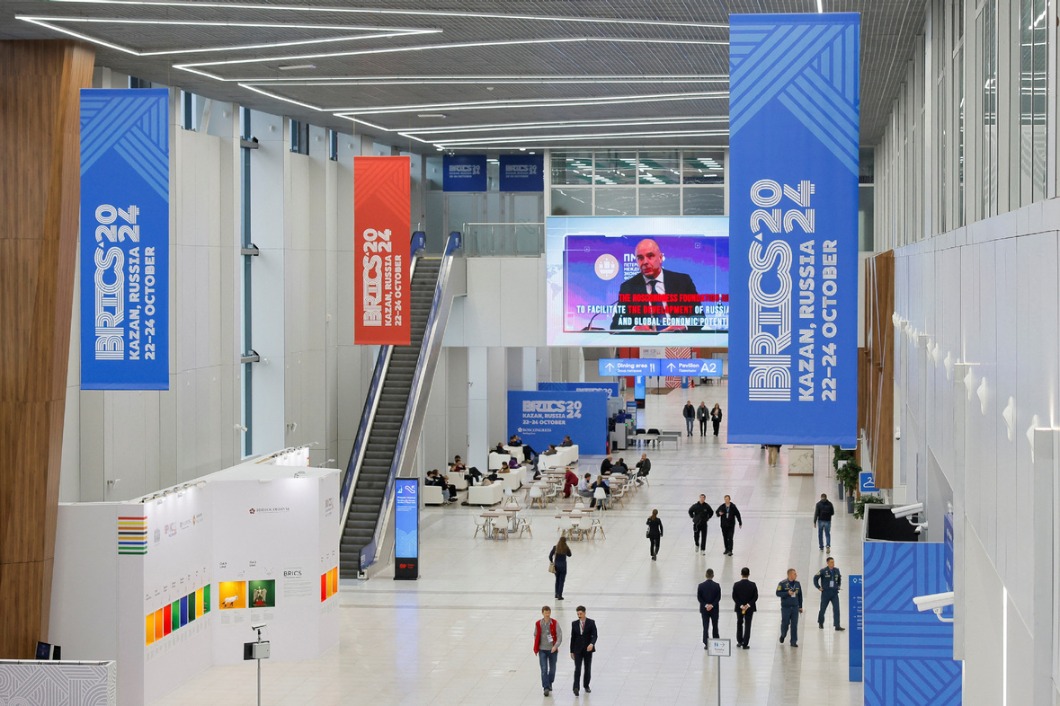Five driving forces behind China's high-quality, cost-effective EVs


The rise of Chinese electric vehicles (EVs) is undoubtedly a historic event reshaping the landscape of the global auto industry. Chinese automotive manufacturers now produce over half of the world's EVs, most of which are sold on the domestic market and only 25 percent are for export. However, the advanced technologies and competitive pricing of Chinese EVs have left many international automakers feeling impacted. Some Western countries are hyping up the narrative that the appealing prices are primarily attributed to government subsidies. Is this really the case? Upon closer examination, it is apparent that the secret to China's cost-effective EVs lies not in government subsidies but in China's unique innovation-driven approach.
Unprecedented upgrading pace unmatched by conventional automakers
Chinese automakers have applied the Moore's Law and Internet thinking, enabling Chinese EVs to go beyond the constraints of conventional transportation tools. These EVs have transformed into multi-functional and cutting-edge platforms combining transportation, entertainment and information. This agile approach is better matched for today's consumer — with rapid updates and new features. While traditional automakers typically need four years to launch a new model, Chinese EV manufacturers require merely 1.3 years. Some emerging Chinese enterprises are even capable of releasing three model updates within a single year. Chinese EVs are updated and iterated like electronic products such as smart phones and computers, and it's obviously difficult for traditional carmakers to keep up with such a rapid pace.
Sustained investment in core technologies
Compared to traditional gasoline-powered cars, electric vehicles need different core technologies—batteries, motors, electronic control systems, as well as different related materials and supply chains. This has presented China's automotive manufacturers with an opportunity to catch up and surpass their global peers. As the saying goes, "chance favors the prepared mind." Chinese manufacturers invested in core EV technologies early on and for the long term. For instance, China's CATL, a global leader in new energy innovative technologies, has focused its efforts on the development of power batteries, which generally accounts for one third of the cost of an EV. Leading the world technologically, the company holds a 38 percent global market share. Besides, Chinese enterprises also dominate the processing of raw materials which is key to the manufacturing of batteries and motors, thanks to their early start and constantly upgraded technologies. These combined advantages have given Chinese EV companies a significant lead in cost control and quality improvement.
Advanced subsystem cluster
Advanced EVs not only excel as complete vehicles, but also feature significant advancements and innovations in their key subsystems. Many of China's most enterprising companies with robust R&D capabilities delve deep in their respective fields of strength, be it hardware or software. This, plus comparative advantage and the division of labor, has produced a strong synergy in the industry. Intelligent driving represents the pinnacle of competition in the global EV manufacturing space. And China has nurtured dozens of unicorn and gazelle companies in this field. Apollo intelligent driving system, developed by China's tech giant Baidu, has evolved to the sixth generation, leading in both technological standards and market applications. This is just a microcosm of the larger picture.
Highly efficient integration of industrial and supply chains
China's EV industry places high importance on industrial clustering and has formed four major industrial hubs centered around Beijing, Shanghai, Shenzhen and Chongqing. Each place is home to thousands of upstream and downstream enterprises, therefore enabling EV manufacturers to quickly gather tens of thousands of components within a short period of time. An EV manufacturer situated in the industrial circle of Shanghai can get all of its components in merely four hours. Besides, Changzhou city, 160 kilometers away from Shanghai, is home to 31 out of the 32 stages of power battery production, covering a staggering 97 percent of the entire industrial chain. It is because of such unparalleled advantage that Chinese EVs are manufactured and upgraded at an unmatched speed with minimal supply and production costs. This is why Chinese automakers are able to make constant technological breakthroughs and lower their prices at the same time.
Super large market
Thanks to robust consumer demand, well-developed supporting infrastructure and consumers' burgeoning interest in green and smart technologies, China has become the world's largest EV market. In 2023, China's new energy vehicle sales reached 9.495 million units, ranking first in the world for nine consecutive years. By 2030 the sales are projected to reach 15 million units. According to the Wright's Law, for every cumulative doubling of units produced, costs will fall by at least 10 to 15 percent. The massive market empowers Chinese EV manufacturers to continuously cut costs in a sustainable way.
Meanwhile, the sheer size of China's market also means more intense competition. There were nearly 500 NEV (new energy vehicle) manufacturers in China in 2018, but only 40 of them were in a sound operational condition in 2023, which means 90 percent were eliminated from the market. And another 80 percent are expected to disappear in the next five years. In order to ensure their survival, Chinese EV manufacturers must do all they can to craft the ultimate "Dream Car" for consumers. It is fair to say that Chinese automotive companies that survive the cut-throat competition are those who can offer products of exceptional quality at reasonable prices. Otherwise, it would be hard for them to gain a foothold in the market. This has become another key reason why Chinese EVs excel in quality, are competitively priced and lead the global market.
China's EV industry has pioneered an efficient development path characterized by rapid innovation, strong emphasis on R&D, specialized division of labor, vertical integration and market-driven strategies. This new path serves as a beacon for countries aiming for green transformation, especially Global South countries. What is advisable is to learn from the experience of China's success in the EV sector, rather than spreading rumors, smearing or decoupling. Such erroneous actions cannot impede the progress of China's EVs, but will only end up hindering one's own advancements in innovation.
The author is a Beijing-based international affairs commentator.
The views don't necessarily reflect those of China Daily.
If you have a specific expertise, or would like to share your thought about our stories, then send us your writings at opinion@chinadaily.com.cn, and comment@chinadaily.com.cn.
































